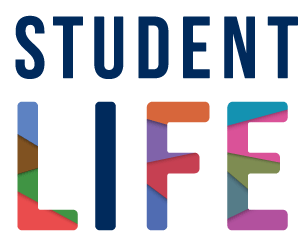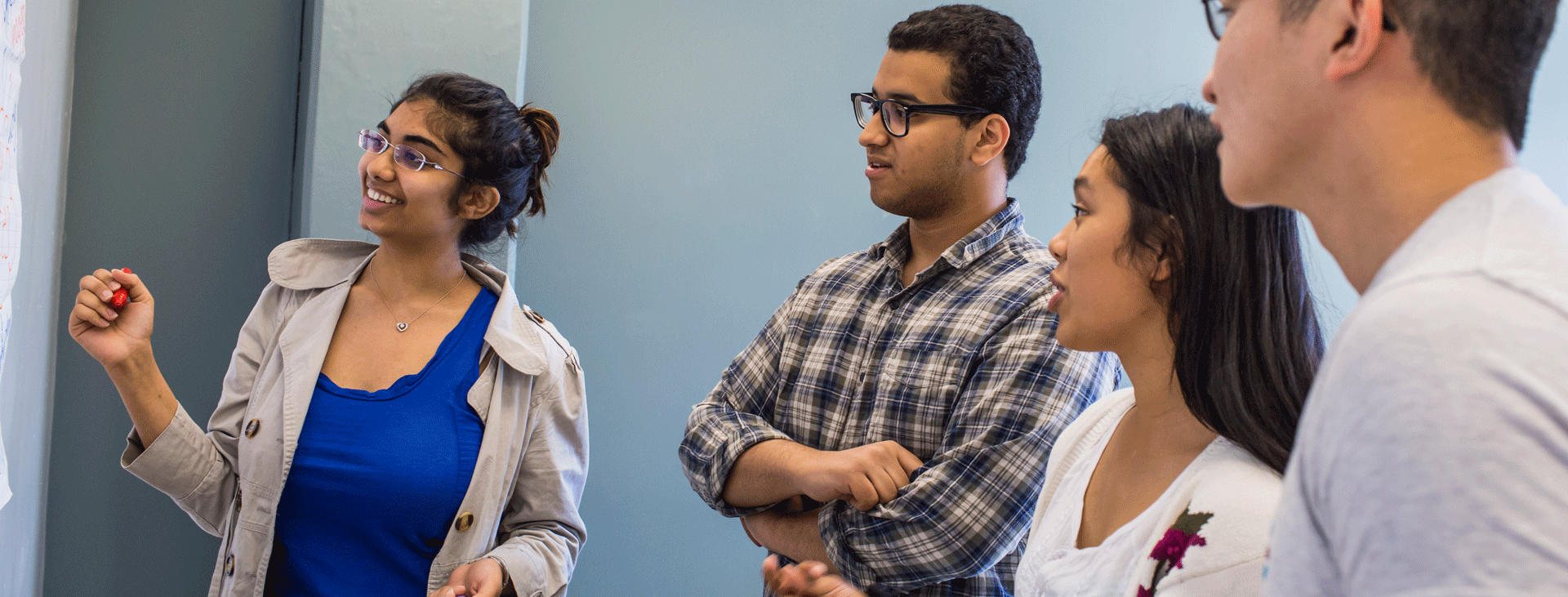Join other doctoral students from across the University to discuss community-engaged learning (CEL) as a form of community-university engagement while working in interdisciplinary groups on a collaborative project for a community partner. Enrich your teaching, research and professional service skills to prepare for faculty positions, and develop new skills and networks to pursue non-academic positions.
Seminar Eligibility
Open to all enrolled doctoral students. We recommend this program to doctoral students who have completed the majority of their coursework due to the time commitment required. Students interested in community engagement who have not previously participated in any form of community placement (e.g. a previous program-related practicum or internship) are especially encouraged to apply.
Seminar Overview
Fall Semester Focus
Students will learn about ethical community engagement and the theoretical foundations of CEL, preparing them for collaborative projects with their fellow seminar participants and a community partner (grassroots group, nonprofit organization, public organizations etc).
Winter Semester Focus
Students will focus on their community-engaged projects, learning from their community partners and each other as they work on a community-defined deliverable. The program will be facilitated by staff at the Centre for Community Partnerships who have extensive experience in community-university engagement and on-the-ground community development, as well as feature faculty and community partner guest speakers.
Seminar Schedule
Wednesdays, 2:30 – 4 p.m.
- September 10: Seminar: Foundations of Community-Engaged Learning (in person on the St. George campus)
- October 1: Ethics, Power and Privilege in Community Engagement
- October 22: Working with Community Organizations and Assets – Based Community Development
- November 12: Reflection and Assessment
- December 3: Designing and teaching a Community – Engaged Learning Course (in person on the St. George Campus)
- January 7: Community-engaged research
- February 4: Group work & Project management
- March 4: (optional) in-person on the St. George Campus work and share session
- April 4: (optional) in-person on the St. George Campus work and share session
- April 29: in-person presentations (in person on the St. George Campus)
Seminar Expectations
- Attend all 8 mandatory seminars, (with 2 additional optional sessions) and complete all required reading
- Work in teams on a collaborative research project with a community organization or grassroots group (more information in next section; mostly remote work with possible in-person meetings)
- Complete one written reflection (750 words each) and one draft syllabus (optional)
Research Project
Students will be working in interdisciplinary teams of 4-6 on a research project proposed by a community partner. This project is intended to require 35-40 hours of work in the winter term, and students will be able to rank which project they would like to contribute to once the seminar has begun. Project descriptions will be posted on the CCP website as they are confirmed over the summer term.
Projects from Previous Years
Centre for Community Learning and Development
The students who are placed with this project will be working to support CCL&D’s community arts programming, which involves community arts programs for residents, community gallery space, a series of artist interviews and creative cultural arts pop-up events in the community. This opportunity will be collaborative, creative and social justice-oriented. Student responsibilities and tasks will include organizing, programming and promoting community arts events, contributing to grant-writing to support community arts programs, and contributing new ideas and effort to the creation, renewal or continuation of CCL&D’s community arts initiatives.
For Youth Initiative
Each student placed with FYI will be matched to one grassroots youth-led initiative in order to provide mentorship, support and capacity-building opportunities to the initiative’s leaders. The youth-led initiatives/organizations will articulate their needs, priorities and goals and placed students will share their related expertise and skills with the youth. The placed students are likely to be supporting project management implementation in different communities, which might include some administrative support, workshop facilitation or assistance around outreach.
Scadding Court Community Centre
Scadding Court will meet with students at the outset of the learning opportunity to match students to an initiative that requires assistance and that matches their interest. Students will have the opportunity to engage in projects within the continuum of programs, supports and services that Scadding Court Community Centre offers, including social development through children, youth seniors and family programming, as well as the depth of economic development through micro-entrepreneurship opportunities provided through Business Out of the Box, Scadding Court Urban Kitchen, Scadding Court Urban Markets and other emerging initiatives. All of Scadding Court’s work involves both a micro and macro perspective to ensure that local needs are met while structural, systemic challenges are addressed. Students will have the opportunity to conduct academic and community-based research to further develop one of these programs and/or initiatives.
Resident Consultation
St. Stephen’s Community House
The project would consist of assisting SSCH to gather data for the ‘Theory of Change’ program reviews. The organization undertook program reviews from a population needs perspective rather than a program evaluation perspective. Students would be required to complete literature reviews / data gathering / interviews and focus groups / mapping of participants and services / neighbourhood analysis based on census data for our upcoming reviews. Students can participate with staff in forming our theory of change at a series of workshops and then gathering data to support long-range planning. For example, in our theory of change for children we expect that an outcome we desire for disadvantaged children is to be ready for school (kindergarten) and we need to review literature and find measurable indicators on school-readiness that we can apply in our work.
Toronto Youth Food Policy Council
Students will be working to support the activities of the Food By Ward initiative, which is led in partnership with the Toronto Food Policy Council, under the Toronto Food Strategy Team. Students will be helping to analyze and identify the best ways to share and disseminate data collected through this project into communities. They will also be helping to systematically list and assess the opportunities to implement the Food By Ward resource guide into communities, improving community access as part of a broader strategy to address food security and equity issues.
The Children’s Book Bank
This project involves consulting residents in order to better understand barriers to use of The Children’s Book Bank. Though Toronto is cited as having one of the best educated populations, child poverty in the city rates are high, currently hovering at nearly 40%. We know that strong literacy skills are a predictor of employment success and active civic engagement. At its storefront and through its community partnerships, the Children’s Book Bank provides over 5,000 free books per month to families and their children in low income communities throughout the city. That said, one of our organizational goals is to increase visits to our storefront, located on 350 Berkeley Street, so that more caregivers and their children access the safe and enjoyable reading environment that’s been created for them. We would like students to conduct surveys in the surrounding neighbourhoods to understand better if people in these communities have heard of the Book Bank and have visited our storefront to take advantage of our literacy activities. And if they haven’t why not? These surveys could be done at street level or in community, neighbourhood or health centres in the surrounding areas.
Apply to Doctoral Seminar on Community-Engaged Learning
The application period for the 2025-2026 academic year is now closed. Complete the CEL Doctoral Seminar – Communication Request form to be notified when the 2026-2027 application process begins.
CCP provides a letter of completion as proof of participation. This is a co-curricular program.





